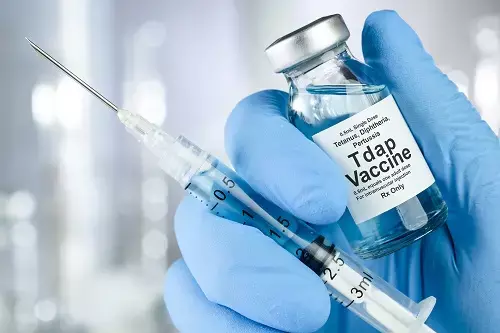- Home
- Medical news & Guidelines
- Anesthesiology
- Cardiology and CTVS
- Critical Care
- Dentistry
- Dermatology
- Diabetes and Endocrinology
- ENT
- Gastroenterology
- Medicine
- Nephrology
- Neurology
- Obstretics-Gynaecology
- Oncology
- Ophthalmology
- Orthopaedics
- Pediatrics-Neonatology
- Psychiatry
- Pulmonology
- Radiology
- Surgery
- Urology
- Laboratory Medicine
- Diet
- Nursing
- Paramedical
- Physiotherapy
- Health news
- Fact Check
- Bone Health Fact Check
- Brain Health Fact Check
- Cancer Related Fact Check
- Child Care Fact Check
- Dental and oral health fact check
- Diabetes and metabolic health fact check
- Diet and Nutrition Fact Check
- Eye and ENT Care Fact Check
- Fitness fact check
- Gut health fact check
- Heart health fact check
- Kidney health fact check
- Medical education fact check
- Men's health fact check
- Respiratory fact check
- Skin and hair care fact check
- Vaccine and Immunization fact check
- Women's health fact check
- AYUSH
- State News
- Andaman and Nicobar Islands
- Andhra Pradesh
- Arunachal Pradesh
- Assam
- Bihar
- Chandigarh
- Chattisgarh
- Dadra and Nagar Haveli
- Daman and Diu
- Delhi
- Goa
- Gujarat
- Haryana
- Himachal Pradesh
- Jammu & Kashmir
- Jharkhand
- Karnataka
- Kerala
- Ladakh
- Lakshadweep
- Madhya Pradesh
- Maharashtra
- Manipur
- Meghalaya
- Mizoram
- Nagaland
- Odisha
- Puducherry
- Punjab
- Rajasthan
- Sikkim
- Tamil Nadu
- Telangana
- Tripura
- Uttar Pradesh
- Uttrakhand
- West Bengal
- Medical Education
- Industry
Tdap vaccination may Reduce Risk of Dementia in elderly, Finds study

A growing number of studies have found vaccinations are associated with a lower risk of dementia. In a study, researchers have found that tetanus, diphtheria, pertussis (Tdap) vaccination might lower dementia risk by 42%. The study findings were published in The Journals of Gerontology: Series A on April 15, 2021.
Adult vaccinations may reduce the risk for dementia. However, it has not been established whether tetanus, diphtheria, pertussis (Tdap) vaccination is associated with incident dementia. Therefore, Dr Jeffrey F Scherrer and his team conducted a study to determine whether individuals with an objective history of Tdap vaccination, compared to those remaining free of Tdap vaccination, had lower dementia incidence. They further evaluated whether this association differed by age groups (65–69, 70–74, and ≥75 years).
Researchers tested their hypothesis first in the Veterans Health Affairs (VHA) cohort and then replicated it in an IBM MarketScan medical claims cohort. The representative cohort study used deidentified VHA medical record data from 2008-2019. The MarketScan cohort was comprised of deidentified patient data from 2009-2018. The cohorts included patients who had at least three well-visits during the observation period. Follow-up continued through 2018. They included a total of 122,946 eligible VHA patients and 174,053 eligible MarketScan patients.
In the VHA cohort, the patients were, on average, 75.6 (SD ± 7.5) years of age, 4% female, and 91.2% were White. In the MarketScan cohort, the patients were 69.8 (SD ± 5.6) years of age and 65.4% were female. They used Competing risk (VHA) and Cox proportional hazard (MarketScan) models to assess the association between Tdap vaccination and incident dementia in all patients and age subgroups.
Key findings of the study were:
The researchers found that after controlling for confounding variables, patients with Tdap vaccination had a significantly lower risk for dementia in both groups. (VHA: hazard ratio [HR] = 0.58 and MarketScan: HR = 0.58).
The authors concluded, "Tdap vaccination was associated with a 42% lower dementia risk in 2 cohorts with different clinical and sociodemographic characteristics. Several vaccine types are linked to decreased dementia risk, suggesting that these associations are due to nonspecific effects on inflammation rather than vaccine-induced pathogen-specific protective effects."
For further information:
Medical Dialogues Bureau consists of a team of passionate medical/scientific writers, led by doctors and healthcare researchers. Our team efforts to bring you updated and timely news about the important happenings of the medical and healthcare sector. Our editorial team can be reached at editorial@medicaldialogues.in.
Dr Kamal Kant Kohli-MBBS, DTCD- a chest specialist with more than 30 years of practice and a flair for writing clinical articles, Dr Kamal Kant Kohli joined Medical Dialogues as a Chief Editor of Medical News. Besides writing articles, as an editor, he proofreads and verifies all the medical content published on Medical Dialogues including those coming from journals, studies,medical conferences,guidelines etc. Email: drkohli@medicaldialogues.in. Contact no. 011-43720751


